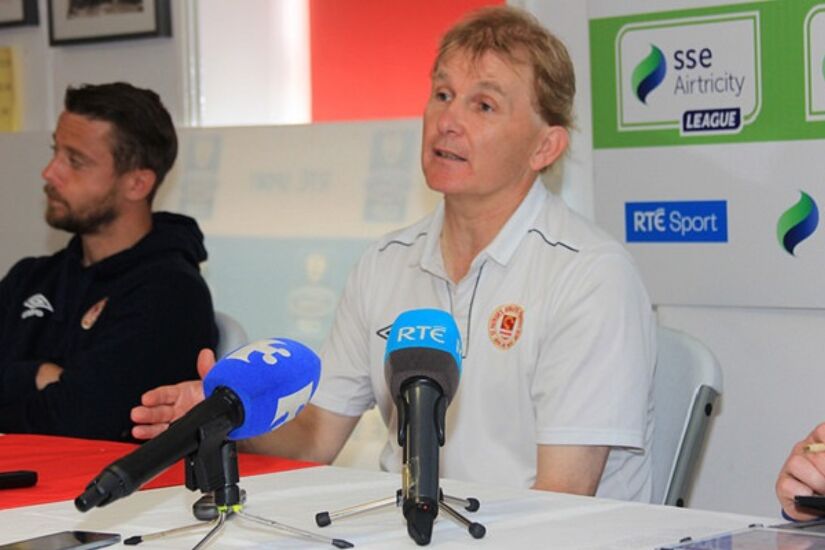Garry Haylock: A clever manager will use the press to send messages to particular groups

Credit: Darragh Connolly (ETPhotos)
Picture the scene: his team have just lost a game he thinks that they could have won; there has been an argument in the dressing room about a player losing his marker for the decisive goal.
The whole week’s preparation has been ruined by a lapse in concentration. The players and staff are frustrated and the room is very tense.
There is another game midweek and the manager knows that he will have to make changes. A couple of players have picked up injuries and probably won’t train before the game.
He's thinking about the training session plan that will now have to be thrown out.
That’s the third game in a row without a win and he is going to have to go up to the boardroom and face an increasingly belligerent chairman, whose enthusiasm for the team has been spilling over to interference.
The manager knows that he will have to explain team selection and tactics again.
Against this backdrop, he must now go and face the media who know exactly what is going on in the dressing room and boardroom and want something that they can put in a headline.
A clever manager will use the press to send messages to particular groups. The players, fans, directors will all look at his comments and take something from them. However, it is very easy for the intended message to get lost.
On the Pro Licence with the English FA we recently had a media day where some gentlemen and women of the press came in to talk to us about how they work.
The media demands on managers in the Premier League are ridiculous, with every manager being contracted to give five interviews within an hour of the game finishing.
We gave three mock interviews: a pre match press conference, an after match interview and an in depth, soft interview. All were conducted on camera, and we watched them back and were able to critique.
It gave a fascinating insight into what the journalists are looking for and how they will try and get a manager to say something that they can use.
When luminaries such as The Times’ Henry Winter are explaining that they ask loaded questions that contain words that they want to use as a headline and then want you to repeat that word so that they can write it as a quote, it does help to explain how the media’s portrayal can distort reality.
There are numerous occasions that the intention can become separated from the outcome.
One of the most famous was Rafa Benitez who, while manager of Liverpool, used his pre match conference to highlight some “facts” about Manchester United and Alex Ferguson. His intention was to garner sympathy but the reality was he just looked like he was whining!
Recently, Derry manager Kenny Shiels was quoted as saying that his team were “just a modest wee country team.” Now that did make me laugh out loud!
I can see that he was trying to dial down expectation after a bright start but I’ve been to the Brandywell and played in a Cup semi-final when the place was jumping.
There is not an atmosphere like it when the team are going well and to describe them as such is simply not true!
Players have also been known to try and use the press to their advantage.
In 1994, I was fortunate to play in the winning IFA Cup team with Linfield and was asked to go upstairs at the Oval for a TV interview with the legendary Jackie Fullerton. Thinking that this was an opportunity that I could use in my favour, I asked Jackie to ask me about the following season.
Being the pro that he is, Jackie duly obliged and I took the chance to tell everyone watching that I was out of contract and was open to offers.
What I forgot was that later that night the whole team, staff and directors settled down in the bar at Windsor Park to watch the highlights – and the interviews!
There was an awkward silence afterwards and later that summer I left to join Portadown.
Football is not a matter of life and death
I didn’t know Ryan McBride and had never seen him play, but the football world is very small and the outpouring of grief from all quarters following his tragic death tells me he was respected and loved by most people that knew him.
Football is not a matter of life and death and when something like this happens it puts into perspective what is really important in life. My thoughts go out to his family and friends.
Garry Haylock is a former professional footballer and manager. During his playing career he represented Shelbourne, Dundalk, Linfield and Glentoran, winning the Premier Division twice and the FAI Cup three times, as well as two titles in Northern Ireland and 2 IFA Cups.

